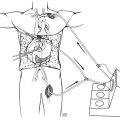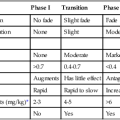
In the world of healthcare, ongoing learning is crucial for providing the best possible care. Medical professionals are faced with new challenges every day, and advanced learning can help them acquire the skills and knowledge needed to meet these challenges. By continuing their studies, professionals can improve their ability to make informed decisions, communicate effectively, and specialize in specific fields, all of which directly impact the well-being of those in their care.
This article will discuss several ways advanced education can improve care quality. From enhancing decision-making skills to fostering better communication, we will explore how investing in further learning can make a real difference in medical outcomes.
Enhances Clinical Decision-Making Skills
One of the most important benefits of pursuing advanced learning is the ability to make better decisions. In the medical field, making the right choice can significantly impact someone’s recovery. Advanced training helps professionals deepen their understanding of medical concepts, which allows them to assess situations more accurately and choose the best treatment options.
Critical thinking and problem-solving are essential components of advanced programs. By developing these skills, medical workers can analyze data, weigh the pros and cons of different approaches, and decide on the most effective course of action. This level of expertise leads to faster and more accurate diagnoses, better treatment plans, and fewer mistakes—all of which contribute to improved outcomes.
Develops Leadership Skills
Another way advanced education contributes to improved care is by helping professionals develop leadership skills. You can strengthen your leadership skills with online EdD programs specifically designed to teach individuals how to lead teams, manage resources, and inspire others. Strong leadership is key to ensuring that all team members work together effectively and efficiently in a medical setting.
Leadership is more than just giving orders—it involves guiding a team toward a shared goal, resolving conflicts, and ensuring everyone has the tools they need to succeed. When medical professionals participate in leadership-focused programs, they learn to communicate clearly, motivate their team, and create an environment that encourages collaboration. This kind of leadership is essential for providing high-quality care and ensuring positive results for those receiving treatment.
Promotes Evidence-Based Practice
Advanced education also plays a vital role in promoting evidence-based practice. Evidence-based practice involves using the latest research, professional expertise, and individual needs to make informed decisions. By staying up-to-date with the latest developments in the medical field, professionals can ensure that they are using the most effective methods available.
When medical workers are well-versed in the latest research, they can apply proven techniques to their daily practice. This means that the methods used are supported by scientific evidence, which reduces the risk of errors and increases the effectiveness of treatments. Evidence-based practice leads to higher care quality, ensuring that professionals use the best tools and strategies available.
Improves Communication
Good communication is critical to providing high-quality care. Advanced training can help professionals improve their communication skills, making it easier for them to explain complex medical information in a way that is easy for individuals to understand. This is especially important when discussing treatment options, risks, and any lifestyle changes that need to be made.
When medical professionals communicate clearly, it leads to better understanding and cooperation. Educating those in their care about their conditions and what they can do to improve their health is also an important part of the recovery process. By bridging the gap between professionals and those they serve, improved communication ensures that everyone is on the same page and working toward the best possible outcome.
Helps You Gain Specialized Clinical Knowledge
Another significant benefit of advanced education is the ability to gain specialized knowledge. In the medical field, specialization can greatly affect how well someone is treated. By focusing on a specific area of medicine, professionals can become experts, which allows them to handle complex cases more effectively and provide a higher level of care.
Specialized programs allow professionals to concentrate on specific fields, such as cardiology, oncology, or pediatrics. This additional training helps them better understand their chosen area, which translates to more accurate diagnoses and better treatment recommendations. Specialized knowledge makes professionals more effective in their roles and ensures that individuals receive the most appropriate care for their unique needs.
Encourages Interdisciplinary Collaboration
Advanced learning also helps professionals work better in teams. In a medical environment, individuals from different specialties—such as doctors, nurses, pharmacists, and therapists—must collaborate to provide comprehensive care. By pursuing further training, professionals learn how to communicate and cooperate effectively with colleagues from various backgrounds, which enhances teamwork and coordination.
When different specialists work together seamlessly, they can create a more thorough treatment plan that considers every aspect of an individual’s needs. Advanced learning encourages this kind of collaboration by teaching professionals the skills necessary to work within interdisciplinary teams, ultimately leading to improved outcomes.
Enhances Technological Proficiency
Technology plays an increasingly important role in diagnosis, treatment, and monitoring. Staying current with technological advancements is crucial for providing quality care. Advanced programs help medical professionals proficiently use the latest tools, such as diagnostic equipment, electronic health records, and telehealth systems.
Professionals who are well-trained in using medical technology can provide more accurate diagnoses and tailor treatments to meet individual needs. This proficiency not only improves care but also allows for more efficient resource use. By incorporating advanced technologies into their work, professionals can keep up with the latest trends and ensure they are delivering the best possible care.
8. Developing Skills for Safety Initiatives
Safety is a fundamental aspect of providing quality care, and advanced training helps professionals develop skills that prioritize safety. Courses focused on safety teach medical workers about best practices for minimizing errors, adhering to safety protocols, and preventing complications. These skills are crucial in ensuring a safe environment for everyone involved.
Whether it’s double-checking medication doses, following hygiene protocols, or conducting safety assessments, advanced training ensures that medical professionals are well-prepared to reduce risks. A focus on safety helps prevent avoidable issues and improves overall care quality, positively impacting those receiving treatment.
Fostering Empathy and Individual-Centered Care
Advanced learning is important in fostering empathy and promoting a more individualized approach to care. By focusing on the human side of medicine, professionals better understand the emotions, fears, and needs of those they serve. This understanding allows them to offer a more compassionate approach in which people feel heard and valued.
Empathy is crucial in building trust. It ensures that those receiving care are comfortable and more likely to follow treatment plans. By fostering empathy, professionals can provide individualized care that addresses physical needs and emotional and mental well-being, leading to better experiences and outcomes.
Advanced learning offers numerous benefits that directly impact the quality of care healthcare professionals provide. The impact of further training is significant, from encouraging collaboration and improving technological proficiency to fostering empathy and supporting safety initiatives. By investing in their development, professionals can ensure they provide high-quality, well-rounded care that meets the needs of those they serve. Continuous learning is key in enhancing medical services and ensuring that individuals receive the best possible treatment for positive outcomes.




